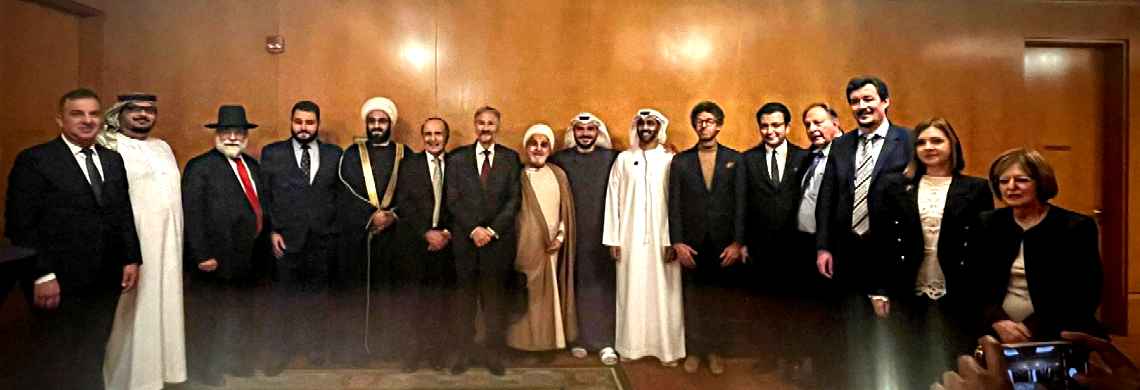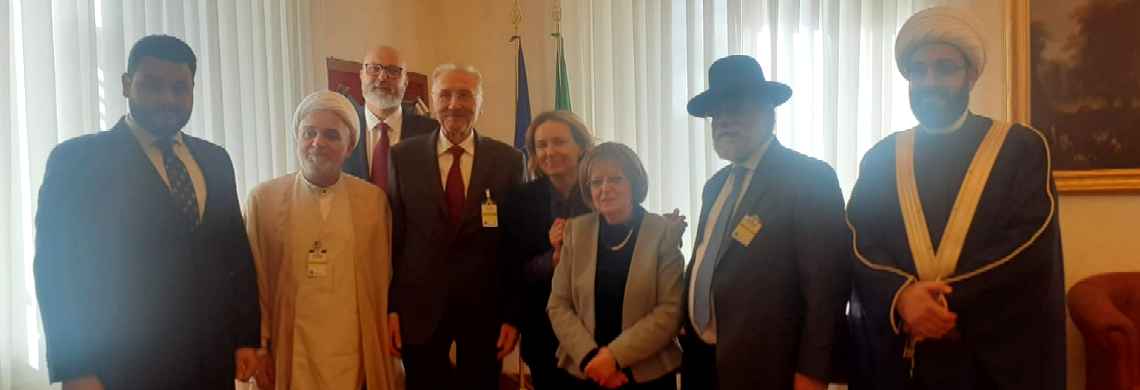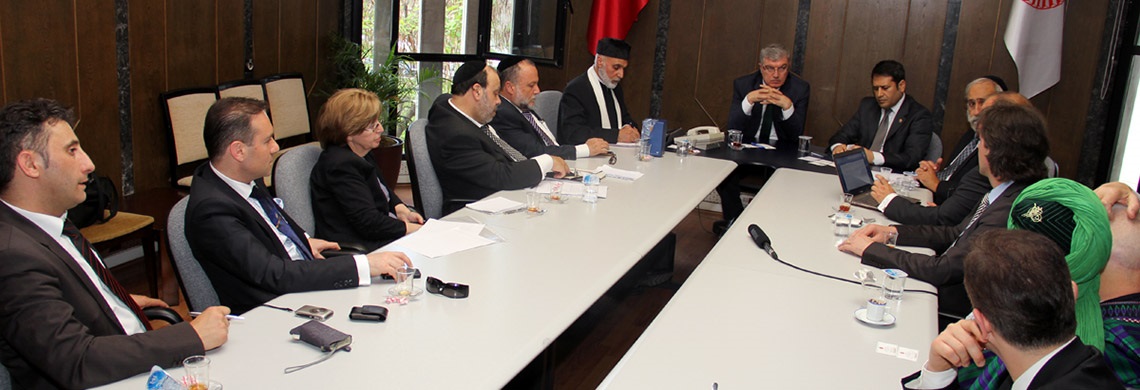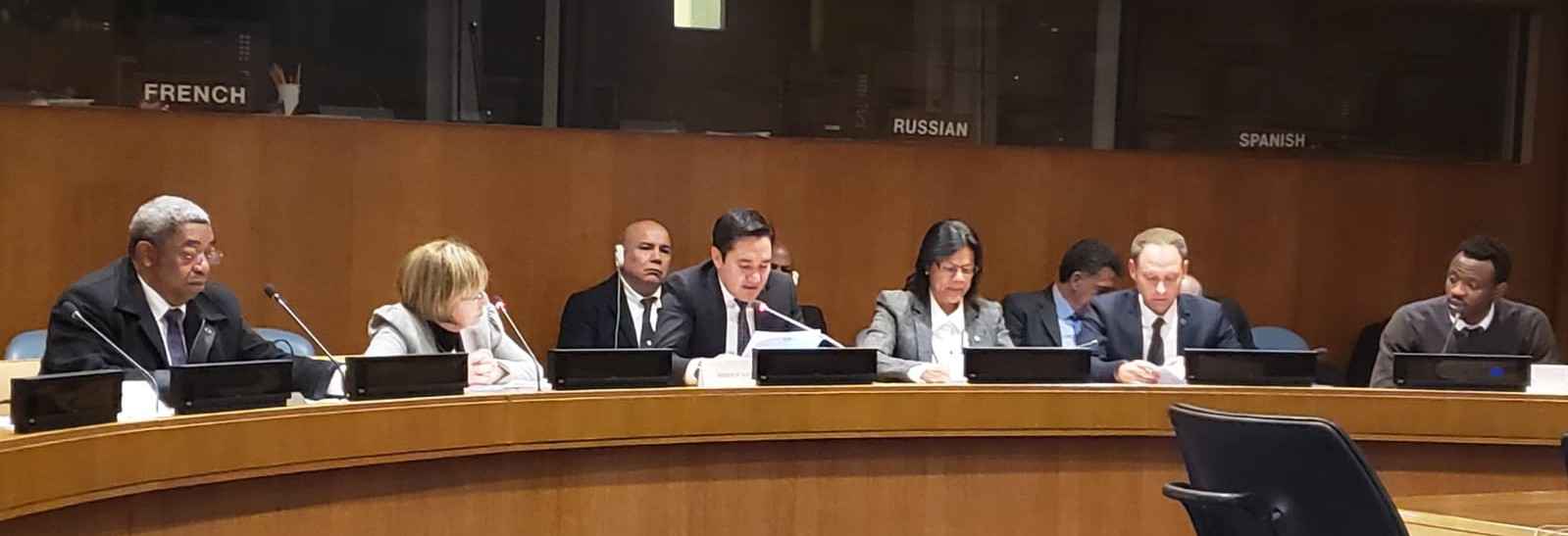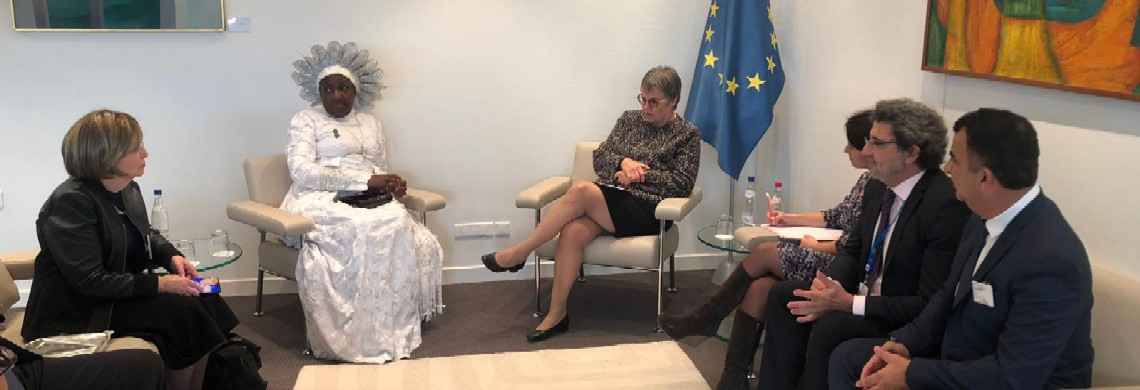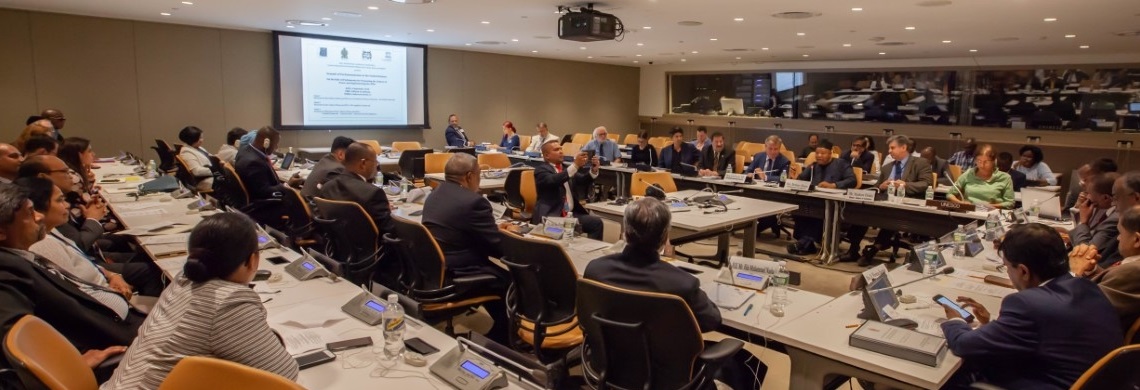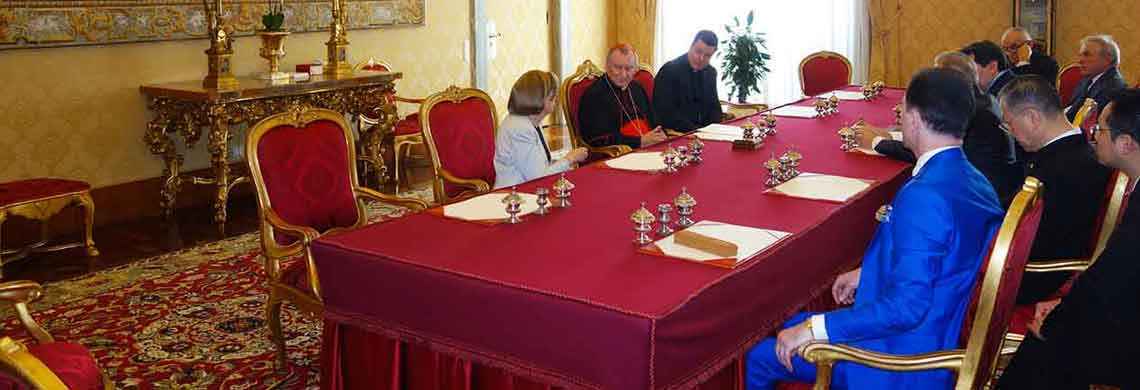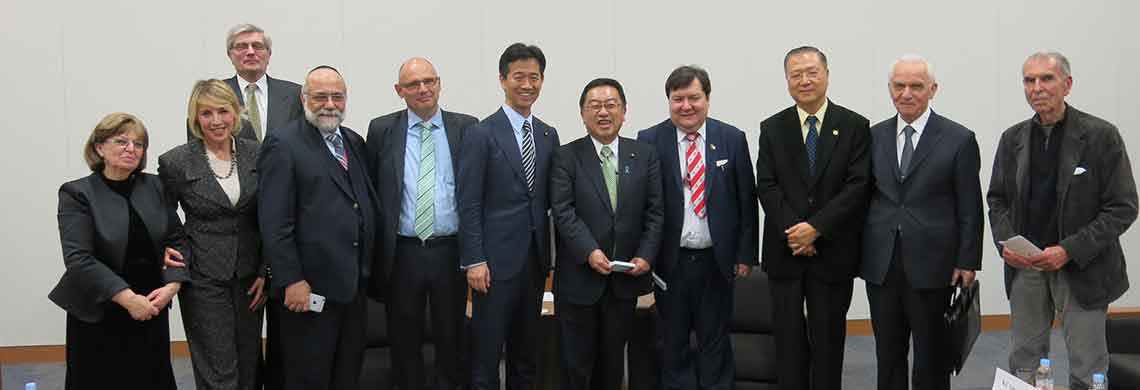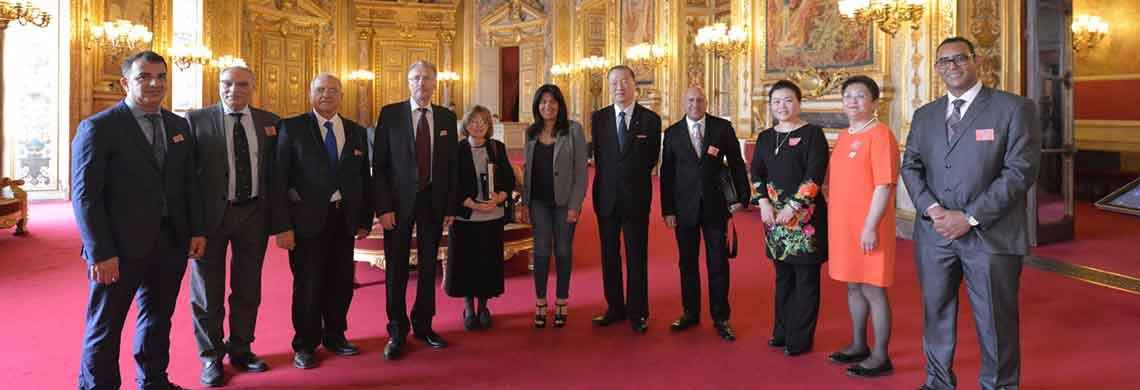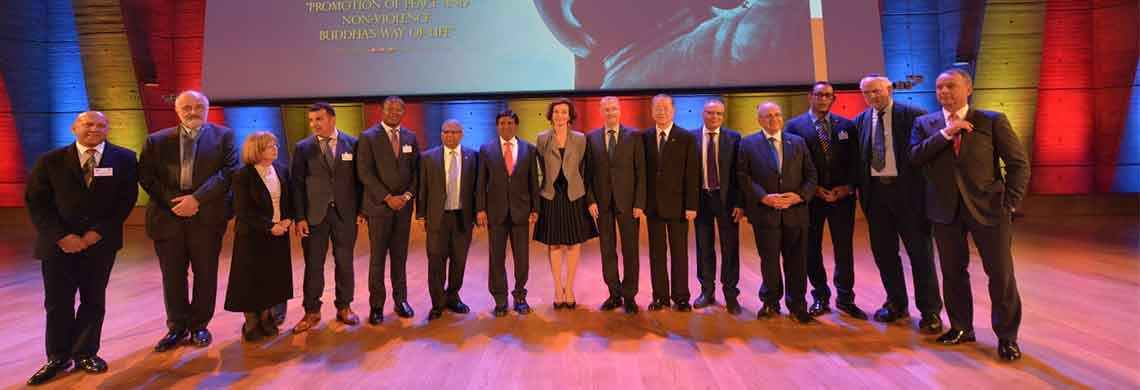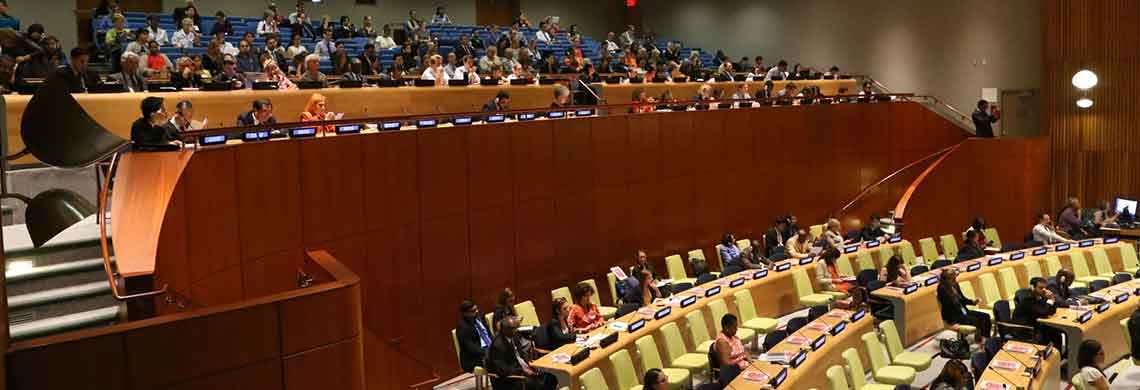Inter-Parliamentary Coalition for Global Ethics
About
An Overview
Throughout the years since the founding of the United Nations in 1945, many multinational treaties on issues such as human rights, terrorism, international crime, refugees, disarmament, commodities and the oceans have been enacted through the efforts of the UN to achieve sustainable global peace and stability.The UN organs, agencies, programs and bodies work tirelessly to implement the goals specified in the UN Charter including: keeping peace throughout the world; developing friendly relations among nations; helping nations work together to improve the lives of poor people; encourage respect for each other's rights and freedoms; and serving as a center for harmonizing the actions of nations to achieve these goals.
In order to succeed in these efforts, it was essential to create a framework for the implementation of the UN General Assembly Resolutions on the Culture of Peace and Global Ethics. The General Assembly has passed a series of resolutions towards the creation of a global culture of peace. These resolutions form the foundation for a culture of peace, necessary in all societies and nations, particularly in areas of conflict.
Among these are the following resolutions:
- Promotion of Religious and Cultural Understanding, Harmony and Cooperation (58/128);
- Elimination of All Forms of Religious Intolerance (59/199);
- The United Nations Millennium Declaration; the principles of the United Nations Year of Dialogue Among Civilizations (.53/22);
- The Declaration and Program of Action on a Culture of Peace, (A/Res/53/243);
- Global Agenda for Dialogue Among Civilizations (A/Res/56/6);
- The Declaration of Madrid (December 2000);
- the International Decade for a Culture of Peace and Non-Violence for the Children of the World (2001 - 2010) (A/RES/53/25);
- Protection of Religious Sites (2001) (A/RES/55/254);
- Promotion of Interreligious Dialogue and Cooperation for Peace (2005) (A/60/L.4);
- Promotion of Interreligious Dialogue (2004) A/RES/59/23;
- United Nations Declaration on the Rights of Indigenous People 2007
Mission
Nevertheless, these UN resolutions are still not being fully implemented or incorporated into efforts to achieve peace in areas of conflict. There are currently many armed conflicts recognized by the UN raging around the globe.The Inter-Parliamentary Coalition for Global Ethics was established in order to achieve global peace and reconciliation in all areas of conflict, in all societies and nations, by promoting the implementation of the UN resolutions on culture and peace.
The Coalition will endeavor to promote the implementation of these resolutions by engaging for the first time religious leaders, parliamentarians, and academic leaders, who search for common values and principles in the arenas of religion, law and education, to work together and individually implement the UN resolutions for the culture of peace through fostering initiatives, projects and collaborations in fields including education, communication and legislation in the Middle East.
The initiative will serve as a milestone and model to achieve peace in areas of conflict and in all societies and nations. It is by giving these sectors a voice in the framework of the peace process that we can hope to find a solution to continuing conflicts in the world, which have eluded all efforts thus far. The Coalition aims to apply this model for all areas of conflict around the globe.
Global Ethics
The Coalition has been established with the goal of inviting parliamentarians from all U.N. member states to commit to work to implement the universal values of "global ethics" for the culture of peace, environmental protection, social justice, ( and the United Nations Sustainable Development Goals) into national legislation. These "global ethics" which have been inscribed in U.N. General Assembly resolutions in order to be implemented. The goal is to act together for prevention of conflicts which pose a threat to freedom, human rights and environmental protection across the globe as a basis for democratic governance.Multi Track Diplomacy
The Coalition endeavors to promote the implementation of these resolutions by engaging for the first time religious leaders, parliamentarians, media and academic leaders, who search for common values and principles in the arenas of religion, law and education, to work together and individually implement the UN resolutions for the culture of peace, environmental protection and social justice through initiatives, projects and collaborations in fields including education, communication and legislation around the globe. The coalition serves as a milestone and model to achieve peace in areas of conflict and in all societies and nations. It is by giving these sectors a voice in the framework of the peace process that we can hope to find a solution to continuing conflicts in the world, which have eluded all efforts thus far and to the rise of racism, anti-semitism and terrorism in democratic societies, which challenge the global arena.





